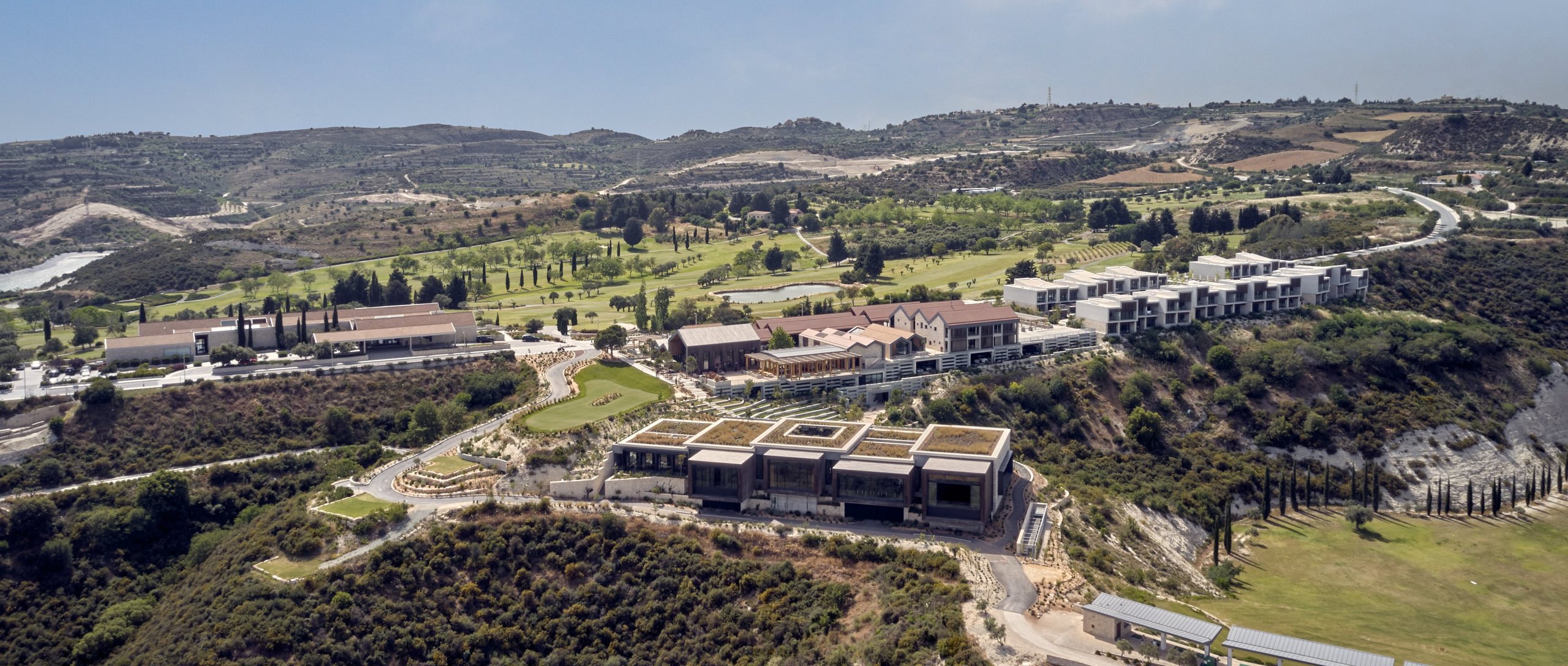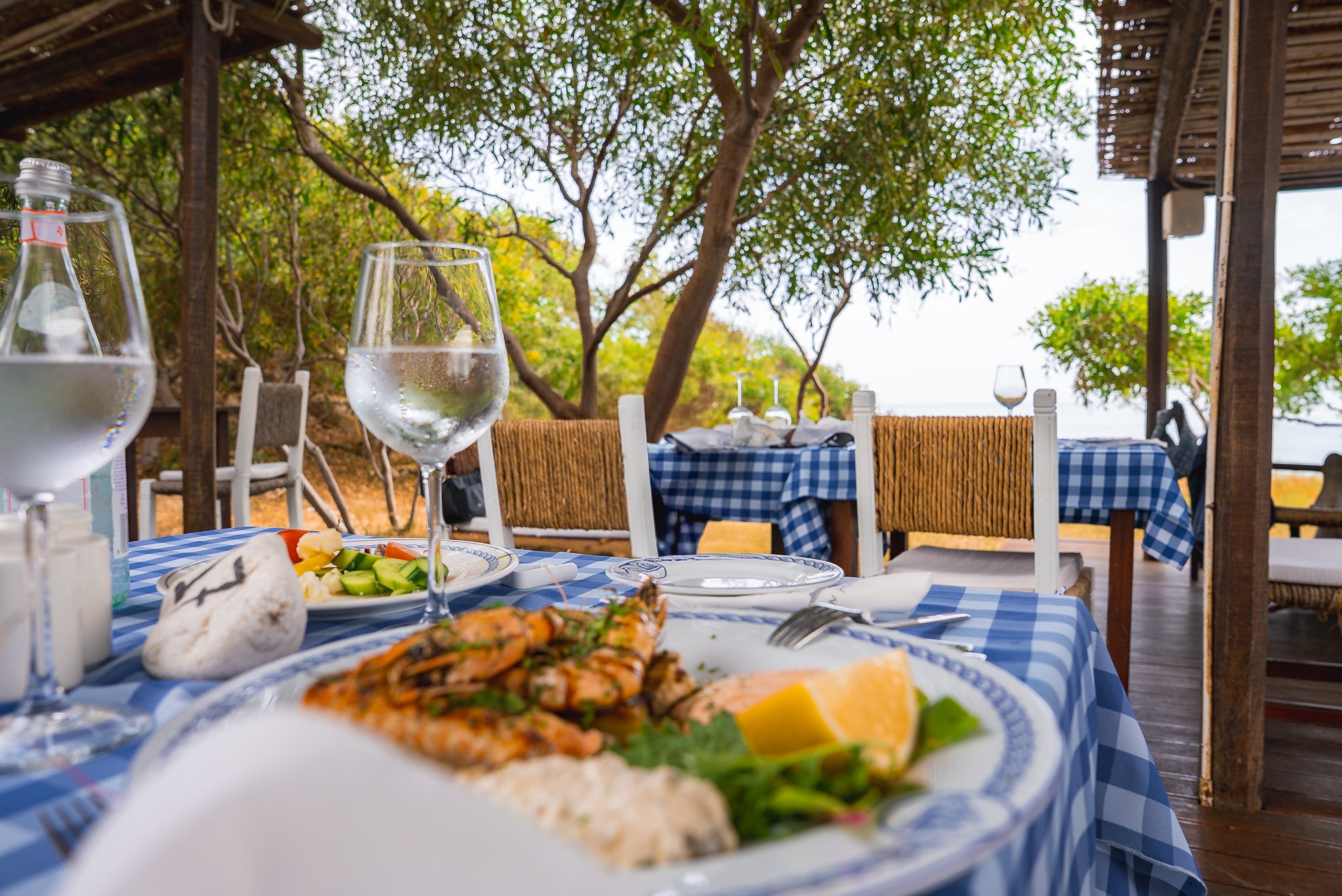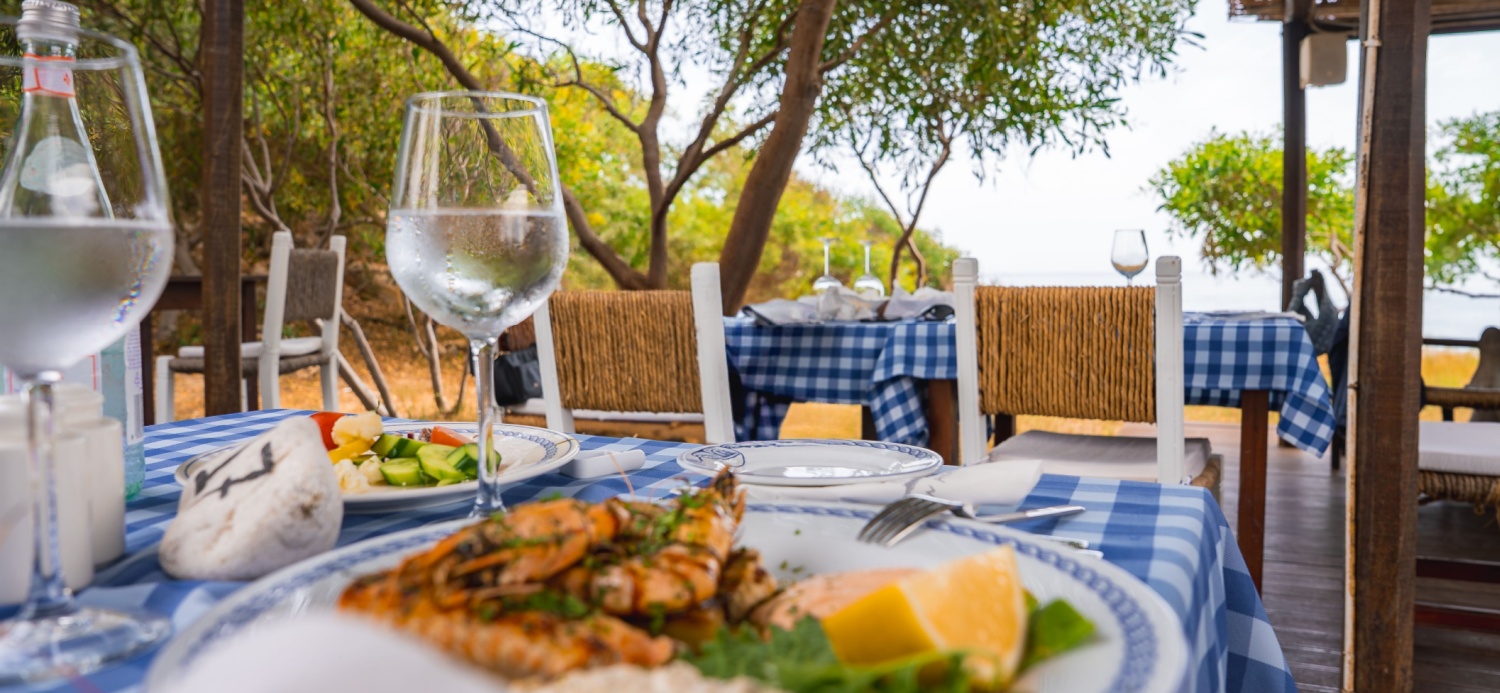Cyprus may be a familiar destination for British buyers, but scratch the surface and you’ll find Cypriot culture has a set of traditions with roots that stretch back thousands of years. From its ancient Orthodox Christian customs and tight-knit family structure to the warmth of its people and festive celebrations, Cyprus has a way of drawing you in and making you feel like part of the island.
Whether you’re planning to settle in for retirement, use your property as a holiday home or make a permanent relocation, embracing Cypriot culture will enrich your experience and help you make real connections with your community. In fact, when you take the time to participate in everyday life, you’ll be met not with tourist-level politeness, but genuine friendship.
Let’s explore how to embrace life in Cyprus like a local.
Contents

Cypriot culture of hospitality and British links
Cypriots are justifiably proud of their tradition of filoxenia – or ‘friend to strangers’. While that often means warm welcomes for tourists, those who make a deeper effort to understand local customs are treated as extended family. Learn a little of the language, join in family events, and you’ll be seen not as a visitor but a valued neighbour.
Many Cypriots speak excellent English – thanks in part to Cyprus’ history as a British colony until 1960. Today, British influence is still felt, with left-hand driving, familiar plugs, and many young Cypriots attending UK universities. It’s not unusual to find a Cypriot who follows your local football team or has cousins in Birmingham.
But there are differences too. Queueing, for instance, is not a cultural norm. Buses won’t necessarily operate on first-come-first-served basis, and shop counters may resemble a rugby scrum at peak hours. Embrace it with a smile – pushing forward gently but politely – and you’ll do just fine.
For a deeper look at purchasing property abroad, get your free copy of our Cyprus Buying Guide:
Download the Cyprus Buying Guide
Family values in Cyprus
Family is the bedrock of Cypriot culture. It’s typical for three generations to live either together or nearby, and extended relatives play a consistent role in each other’s daily affairs. You’ll see grandparents doing school pick-ups, hosting weekend lunches or sitting at cafés with their teenage grandchildren.
This strong family unit shapes how society works. Local businesses often remain in the family name for generations and important decisions – such as property ownership – may involve multiple family members. Understanding how valued elders are can help you make better connections when dealing with Cypriot vendors or neighbours.
If you’re invited into a Cypriot home, bringing a small gift – such as sweets, wine or flowers – will be warmly appreciated. Be prepared for generous hospitality: locals will not let you leave hungry. Embrace the moment, even if you weren’t expecting a meal!
How to greet people in Cyprus
Your first interaction with someone in Cyprus sets the tone – and locals offer a blend of tradition and friendliness. A simple “Kalimera” (good morning) or “Kalispera” (good evening) can go a long way, even if the conversation continues in English.
Among friends and family, it’s common to greet one another with two kisses on the cheeks – first on the right, then left. If you’re unsure, a handshake or friendly smile will suffice until you’re more familiar. Cypriots are rarely formal, but showing polite interest in someone’s wellbeing (starting with “Ti kaneis?” – How are you?) is respected.
The general rule? Be warm, not overly reserved. While strangers may not always initiate conversation, they welcome it once you’re introduced. In fact, locals often remember those who take time to learn and use key phrases – it signals respect, and they’ll often respond with curiosity about where you’re from.
Green Line awareness
Cyprus remains divided between the Republic of Cyprus in the south and the Turkish-controlled north. The boundary between the two is known as the Green Line and crosses the island from east to west.
As a newcomer, it’s important to be aware of this division when exploring or planning trips across the island. Since the 2003 relaxation of border restrictions, you are allowed to cross between the north and south, but you must go through designated checkpoints. There are official crossings in Nicosia, Deryneia and several other locations, where your passport or ID will be checked.
It’s completely safe to make the journey, but it’s wise to bring the right documents and use a hire car with cross-border insurance if driving. Some travellers prefer to go as part of an organised tour, especially for a first-time visit.
The political situation is sensitive, and it’s better to listen than to lead when talking with locals about the division. Some may welcome the topic, but for others it remains deeply personal.
Cyprus social etiquette
Cypriot culture means a society that is remarkably easy-going, which makes settling in as a foreigner more comfortable. However, a few customs will help you blend in more easily.
First, church is central for many Cypriots, particularly within the Orthodox Christian tradition. If you visit one – even as a tourist – modest clothing is expected. Men should avoid shorts and sleeveless tops, and women are advised to wear skirts or dresses that cover the knee. Never cross your legs inside the church and avoid speaking loudly during services.
Second, drinking culture in Cyprus differs slightly from that in northern Europe. While wine, beer and ouzo are enjoyed socially, binge drinking is frowned upon. Public drunkenness is seen as poor behaviour and could sully impressions in your local community.
Lastly, conversations are often warm and personal. It’s very normal to be asked about your family, career or lifestyle – even by someone you’ve just met. It’s not considered rude, more a sign of friendliness and curiosity. Feel free to answer lightly or steer the topic elsewhere – there’s no pressure to share anything you’re not comfortable with.
Key Cypriot holidays and celebrations
Cyprus boasts one of the most generous holiday calendars in Europe, with 15 public holidays per year. Most of them are linked to religious traditions, which are celebrated with social gatherings, meals and often street processions.
Greek Orthodox Easter
Easter is Cyprus’ most important religious celebration. In 2025, Greek Orthodox Easter Sunday falls on 20 April – one week after the Catholic Easter. The week leading up includes solemn ceremonies and spectacular processions, particularly on Good Friday.
“Green Monday” marks the beginning of Lent. Families picnic outdoors with meatless meals – a reflection of religious observance and love of nature. On Easter Sunday, celebration bursts into full swing with grilled souvla (large pork skewers), flaounes (cheese-filled pastries) and live music.
Don’t be surprised if your neighbours invite you to join in. Easter in Cyprus is communal, and everyone is welcome at the table.
Carnival’s place in Cypriot culture
Carnival is one of Cyprus’ most exuberant events. Held in the run-up to Lent – usually in late February or early March – the best-known celebrations take place in Limassol over two weeks. The finale is a grand parade with floats, costumes and loud music.
But it’s not just a city affair – schools, rural villages and nightclubs host themed parties. Children dress up in superhero outfits, while adults might choose traditional garb or creative fancy dress. Even supermarkets join in with themed decorations.
Carnival is a brilliant chance to mix with locals and shed the role of observer. Just throw on a mask and dive in.
Christmas and New Year
Cyprus has long celebrated New Year’s Day as the main time for gift-giving, but Christmas Eve and Day have grown more important in recent years.
On 24 December, families attend midnight mass. Christmas Day is for feasting: roast meats, seasonal vegetables and local sweet pastries like melomakarona (honey-dipped biscuits) feature heavily. Traditional Cypriot stuffing uses rice and pork or liver, though British-style trimmings are easy to find in shops across the island.
Boxing Day is reserved for catching up with friends, while Epiphany on 6 January is marked with festivals near water – with clergy throwing a cross into the sea and swimmers racing to retrieve it.
If you own a second home in Cyprus, this festive stretch from late December to early January is ideal for visits – you’ll find a lively and celebratory atmosphere that mixes religious tradition with winter sun.
Want to feel at home in Cyprus?
Adjusting to life in another country always involves a learning curve. You may even need to deal with a little homesickness after moving to Cyprus. But Cyprus makes it easier than most – with friendly locals, familiar infrastructure and a calendar rich in tradition. At Your Overseas Home, we’ve helped thousands of people buy and settle into their Cypriot property confidently.
If you’re still planning your move, take advantage of our experience and book a call with one of our property consultants today. We can connect you with reputable agents and legal partners on the island, and help you avoid common pitfalls of buying property in Cyprus before they arise.
Whether you’re visiting for Easter, buying a holiday haven or planning a longer stay, the more you understand Cypriot culture, the more rewarding your experience will be.
FAQs about Cypriot culture
Yes. Many Cypriots speak English, and there are strong historical and cultural links with the UK. However, learning local customs – like greetings, family traditions and holiday celebrations – will help you feel more connected and welcomed.
Cypriot culture places strong emphasis on hospitality, family, community and tradition. Filoxenia (friendliness to strangers), respect for elders, and Orthodox Christian values are at the heart of everyday life.
A warm “Kalimera” or “Kalispera” is a great start. In social settings, locals may exchange cheek kisses, but a friendly handshake or smile is also acceptable. Using simple Greek phrases shows respect and is often appreciated.
Yes, but you’ll need to cross at official checkpoints along the Green Line. Bring a valid passport or ID, and make sure your vehicle insurance covers both sides. The topic can be sensitive, so approach it with respect.
Greek Orthodox Easter is the most significant celebration, marked by processions and family feasts. Other major events include Carnival, Christmas, New Year, and Epiphany. Many holidays are community-focused and open to everyone.









